Expand the Debate: This Is What Democracy Sounds Like
A few miles south of the campus arena in the Mile High City where Barack Obama and Mitt Romney met in their first debate, "Democracy Now!" news hour broke the sound barrier by expanding their gated debate to include two third-party presidential candidates.DENVER — A few miles south of the campus arena in the Mile High City where Barack Obama and Mitt Romney met in their first debate, “Democracy Now!” news hour broke the sound barrier by expanding their gated debate to include two third-party presidential candidates. Dr. Jill Stein, of the Green Party, and Rocky Anderson, of the Justice Party, responded to the same questions put to the major-party candidates, in real time, from their own podiums a little ways down the road. The goal was to open the forum, to bring out voices that are ignored or marginalized by the mainstream media. (Libertarian candidate Gary Johnson was also invited to participate, but declined.)
President Obama made a good point in late 2011, when he told “60 Minutes,” “Don’t judge me against the Almighty; judge me against the alternative.” If only the public had a full range of alternatives against which to judge. In fact, most people do. They just don’t know it. The reason they don’t know it is because the media don’t report on third-party politics or campaigns. These campaigns also lack the funds to purchase television airtime, or to compete against the Democratic and Republican campaign fundraising juggernauts. This leads to less diversity of voices, and far fewer alternatives on the ballot.
It hasn’t always been this way. In 1980, the League of Women Voters ran the debates, and independent presidential candidate John B. Anderson was allowed to participate (President Jimmy Carter opposed his participation and boycotted the event). In 1992, billionaire Ross Perot used his personal funds to overcome the media blockade of his presidential campaign. His successful debate performance temporarily propelled him ahead of both Bill Clinton and George H.W. Bush in the polls.
Since then, no third-party candidate has been allowed into the presidential debates. The debates are run by the Commission on Presidential Debates, an organization described by George Farah, founder and executive director of Open Debates, as “a private corporation financed by Anheuser-Busch and other major companies, that was created by the Republican and Democratic parties to seize control of the presidential debates from the League of Women Voters.”
Farah told me that in 1988, “you have the Michael Dukakis and the George Bush campaigns drafting the first-ever 12-page secret debate contract. They gave it to the League of Women Voters and said please implement this. The League said, Are you kidding me? We are not going to implement a secret contract that dictates the terms of the format. Instead, they release the contract to the public and they held a press conference accusing the candidates of ‘perpetrating a fraud on the American people’ and refusing to be ‘an accessory to the hoodwinking of the American people.'”
The Democratic and Republican parties wrested control of the debates from the League of Women Voters, and have controlled them since.
“Democracy Now!” brought Stein and Anderson to a television studio in Littleton. After each response from President Obama and Mitt Romney to moderator Jim Lehrer’s questions, we paused the tape, allowing Stein and Anderson to answer as well. What they said stood in stark contrast to the barbs traded inside the heavily secured debate arena.
For example, on health care, former Salt Lake City Mayor Anderson said: “We’re talking here about Obamacare and Romneycare. I would call it insurance companycare because they’re the ones who wrote it. They joined up with a very conservative foundation years ago to develop this plan, to make the American people buy this perverse product.”
The Green Party’s Stein, a medical doctor from Massachusetts, said: “Under the Obama White House, which basically codified the violations of George Bush, the attacks on our privacy rights, on First Amendment rights, the criminalization of the right to protest … things are not working under Democrats, under Republicans alike. We need a government that is of, by, and for the people, not sponsored and working for big money.”
Robust debate on the critical issues of the day only strengthens democracy. As the Democrats and Republicans raise and spend unprecedented sums of campaign cash, “Democracy Now!” will continue to make additional voices heard. This is what democracy sounds like. Open the debates.
Denis Moynihan contributed research to this column.
Amy Goodman is the host of “Democracy Now!,” an independent global news hour that is broadcast on more than 1,100 stations in the United States and around the world. She is a New York Times best-selling author and her latest book is “The Silenced Majority: Stories of Uprisings, Occupations, Resistance, and Hope,” written with Denis Moynihan.
© 2012 Amy Goodman
Distributed by King Features Syndicate
Your support matters…Independent journalism is under threat and overshadowed by heavily funded mainstream media.
You can help level the playing field. Become a member.
Your tax-deductible contribution keeps us digging beneath the headlines to give you thought-provoking, investigative reporting and analysis that unearths what's really happening- without compromise.
Give today to support our courageous, independent journalists.

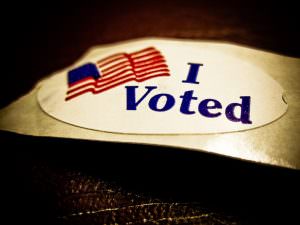
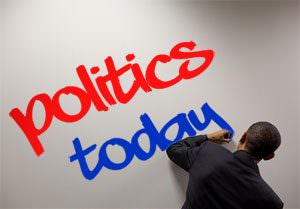
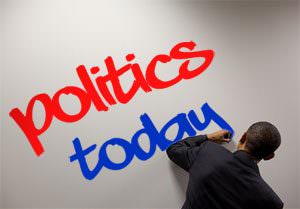
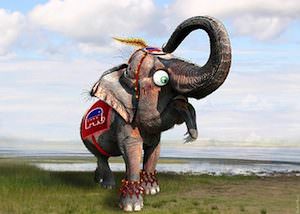
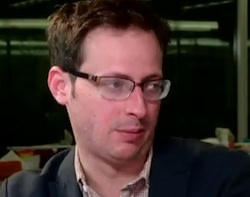


You need to be a supporter to comment.
There are currently no responses to this article.
Be the first to respond.